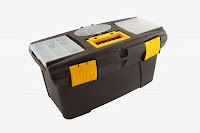You'd think, then, that the wealth of information available these days would make matters easier; in fact, all it's done is complicate things.
Take holidays, for example. In the past, information about a destination, or specific accommodation, was only available in a brochure, and was likely to consist of a few lines of
There was no TripAdvisor, where fellow travellers could spill the beans about the noise from the dual carriageway next to that apparently beautiful hotel. There were no Google Maps, with aerial and street views to allow you to see for yourself the sewage works behind that seemingly perfect villa. It was pot luck whether your trip turned out to be the holiday of a lifetime or an unmitigated disaster.
Likewise with any significant purchase for your home. In the absence of online reviews, the best you could do was try to track down the relevant issue of the consumer magazine Which? in your local library. Nowadays, you can find a review of anything in seconds - and I mean anything. Think of a product, any product - let's say, pencils...and sure enough, here are 141 reviews* of a 12-pack of pencils, which numerous potential buyers have judged 'helpful'.
Increasingly, we rely on others' opinions to shape our decisions, which only makes the process harder. If we feel the need to solicit advice before spending 99p on a dozen pencils, then how much consideration do we have to give to the purchase of a television or a washing machine?
 |
| Image courtesy of John Kasawa/FreeDigitalPhotos.net |
That opened a proverbial can of worms. One reviewer claimed that the lid kept opening when the kettle was boiling. Another said that steam poured from the on-off switch. A third insisted that hot drinks tasted of plastic, even after numerous boils. And on and on it went: a catalogue of woes that some of the 2-star reviews echoed. Oh, yes, I checked those, too.
Eventually I decided life was too short to waste any more of it dithering over whether to splash out £11.99 on a particular kettle, so I went ahead and bought it.
And no, the lid doesn't open of its own accord and my drinks don't taste of plastic, but, yes, there is a little puff of steam from that switch...which I've decided just to ignore. I'll put up with anything rather than resume the torturous hunt for the perfect alternative.
* * *
*An increase of 2 reviews since I drafted this post just a week ago, and be warned, the price has also gone up...if you need pencils, you'd better get in fast.


